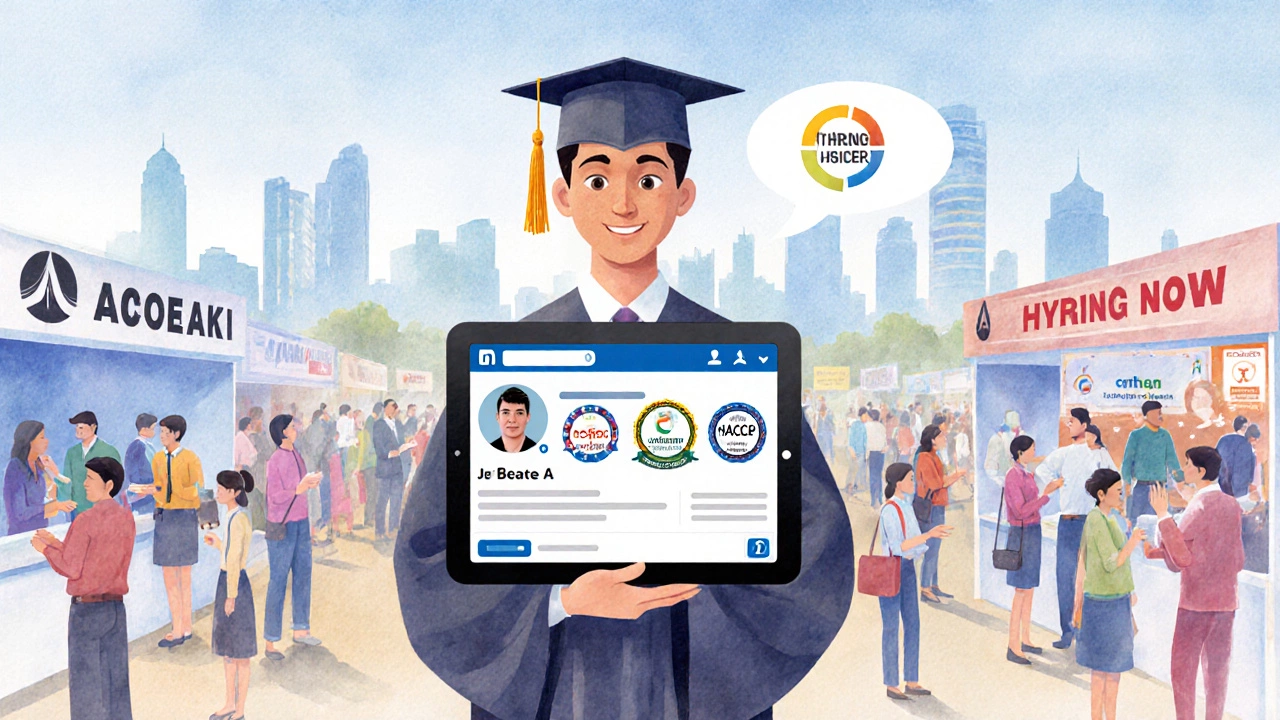Easiest Degrees for Quick Jobs in India - 2025 Guide

Job Search Timeline Calculator
Find Your Job Search Timeline
Choose your qualification to estimate how long it will take to land your first job. Based on 2024 industry data from AICTE and NASSCOM.
Ever wondered which qualification will land you a job faster than the rest? In India the buzz around “easy degrees” isn’t just hype - it’s about matching study time, cost, and market demand. Below you’ll find a clear roadmap to the programs that actually push graduates into the workforce without a long waiting period.
Quick Takeaways
- Three‑year Bachelor of Technology (B.Tech) in core engineering and BBA in hospitality have the highest placement rates (≈85%+).
- Skill‑focused diplomas (e.g., ITI Electrical, Diploma in Digital Marketing) often secure jobs within six months of graduation.
- Internships, industry‑linked projects, and certifications boost employability for any degree.
- Choosing a program aligned with high‑growth sectors-IT, renewable energy, e‑commerce-cuts the job‑search time dramatically.
- Use the checklist at the end to evaluate any course before you enroll.
What Makes a Degree “Easy” to Get a Job?
It’s not about the difficulty of exams; it’s about how quickly the qualification translates into a role. Three key ingredients drive that speed:
- Industry demand: Sectors that are hiring now and projected to grow.
- Curriculum that includes hands‑on training - labs, live projects, apprenticeships.
- Strong campus placement cells or tie‑ups with companies.
When a program checks all three boxes, graduates typically see offers within three to six months.
Top Degrees With Highest Placement Rates
Based on data from the All India Council for Technical Education (AICTE) 2024 placement report, these five undergraduate degrees consistently outshine the rest.
| Degree | Average Study Duration | Placement Rate | Avg. First‑Year Salary (INR) | Key Hiring Sectors |
|---|---|---|---|---|
| B.Tech (Core Engineering) | 4 years | 87% | 4.2Lakhs | IT, Manufacturing, Renewable Energy |
| BBA (Hospitality) | 3 years | 85% | 3.8Lakhs | Hotels, Travel, Event Management |
| BCA (Computer Applications) | 3 years | 78% | 3.5Lakhs | Software Development, BPO, Start‑ups |
| B.Com (Accounting) | 3 years | 73% | 3.2Lakhs | Finance, Auditing, Banking |
| BA (Psychology) | 3 years | 68% | 2.9Lakhs | HR, Counseling, NGOs |
Notice how the top three all have a strong easy degree jobs India profile: short‑to‑medium study period, high placement percentage, and salaries above the national average.

Fast‑Track Diploma Options That Beat Traditional Degrees
If you can’t spend three years on a degree, a diploma might be your shortcut. Below is a side‑by‑side look at the most employable diplomas.
| Diploma | Duration | Placement Rate | Avg. Salary (INR) | Industry Focus |
|---|---|---|---|---|
| ITI - Electrical | 2 years | 82% | 2.8Lakhs | Power, Construction |
| Diploma in Digital Marketing | 1 year | 79% | 3.1Lakhs | E‑commerce, Agencies |
| Diploma in Mechanical Engineering | 3 years | 77% | 3.0Lakhs | Automotive, Manufacturing |
| Diploma in Nursing | 3 years | 75% | 2.9Lakhs | Healthcare, Hospitals |
All of these can land you a job within six months, especially if you take up the optional industry‑certified workshops that many institutes now bundle.
Key Factors That Boost Employability
Even the “easiest” degree won’t guarantee a job if you ignore these four levers:
- Relevant certifications: CompTIA for IT, HACCP for hospitality, or PMP for project management.
- Internship experience: Companies value 3‑6months of real‑world exposure more than extra grades.
- Soft‑skill training: Communication, problem‑solving, and basic data analysis are now mandatory.
- Alumni network: A strong placement cell leverages alumni referrals to open doors.
When you add any of these to a degree, the timeline from campus to paycheck shrinks dramatically.

How to Supercharge Your Job Prospects-No Matter the Qualification
Here’s a quick 5‑step plan you can start today:
- Identify the top hiring sector in your city (e.g., Bangalore’s IT hub, Mumbai’s finance corridor).
- Enroll in at least one industry‑recognized certification related to that sector.
- Secure a summer internship - even a part‑time gig counts.
- Build a LinkedIn profile that highlights projects, certifications, and soft‑skill badges.
- Attend campus placement drives or local job fairs and practice the “elevator pitch” constantly.
Following this roadmap turns a regular graduate into a “ready‑to‑hire” candidate within weeks of finishing the course.
Decision Checklist: Picking the Right Easy‑Job Degree or Diploma
- Is the program industry‑linked (internships, live projects)? \n
- What is the historical placement rate (look for 70%+)?
- Does the institute provide certification bundles at no extra cost?
- Are alumni actively involved in placement drives?
- Is the total cost (fees + living) affordable within your budget?
If you can answer “yes” to at least four of these, you’re likely choosing a pathway that leads to quick employment.
Frequently Asked Questions
Which degree has the shortest study period and still offers good jobs?
A three‑year BBA in hospitality or a two‑year ITI Electrical diploma can land you a job within six months. Both have placement rates above 80% and salaries that beat the national average for fresh graduates.
Do pure arts degrees ever lead to fast jobs?
Arts degrees like BA Psychology can lead to quick roles in HR or counseling if you add certifications (e.g., SHRM) and internship experience. However, their placement rates (≈68%) are lower than tech‑focused degrees.
Is a diploma better than a degree for immediate employment?
For many sectors-electrician work, digital marketing, nursing-a diploma offers a faster route because it’s skill‑centric. The trade‑off is a slightly lower ceiling for senior roles unless you later pursue a degree.
How important are campus placement cells?
Very important. Institutes with active placement cells report 10‑15% higher placement rates. Look for colleges that publish transparent placement statistics and have regular industry visits.
Can I combine a degree with a diploma to boost job chances?
Yes. Many students do a three‑year B.Com and add a one‑year Diploma in Digital Marketing. This hybrid approach shows both academic depth and practical skill, making you stand out to recruiters.

Post-Comment